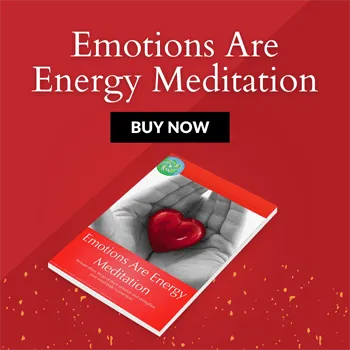If the only prayer you ever say in your life is thank you it would be enough.
—Meister Eckhart
Thank You
We are truly blessed to have a holiday dedicated to feeling blessed! When you say ‘thank you’, you tune your mind and body to the highest emotional states possible. According to Robert Emmons, author of Thanks! How the New Science of Gratitude Can Make You Happier, grateful people experience higher levels of joy, enthusiasm, love, happiness, physical wellbeing and optimism. Gratitude not only improves your health and happiness but has a magnifying effect on those around you. A recent study published in the British Medical Journal showed just knowing someone who is happy makes you 15.3 % more likely to be happy. Taken even further just knowing of a happy friend of a friend (who you don’t even have to know personally) makes you 9.8% more likely to be happier. As you practice appreciation and gratitude you make a positive impact on yourself and the world around you. It is that simple.
Appreciate to Open Your Heart
Thanksgiving is a conscious reminder to focus on what is going right in our lives (vs. wrong) and to share this good feeling with others. It can be easy to get caught up in the woes of life. In fact, the negativity bias in the brain compels us to focus on the stresses of life rather than easily tapping into joy, happiness and peace. When we remind ourselves that half of the world lives on less than $2 a day, it is easier to override the brains stress wiring and instead appreciate our cozy bed, hot shower and warm meal. As we are reminded of the good, we relax and our hearts naturally open to compassionately support those who may not be as fortunate. It is real win-win!
Say ‘Yes, Thank You’ to Everything
Appreciation allows us to say yes to everything. ‘Yes’ energy diffuses stress in the present, worry about the future and guilt over past regrets. Meanwhile ‘No’ energy puts us in a state of resistance to each of these. Perhaps you have heard the saying, ‘What you resist persists.’ Anytime we are in resistance we actually strengthen our connection to the very thing we want to let go of. The energy of appreciation allows us to accept what is in the present moment. Appreciation is a way of saying to whatever is happening in your life, “Yes, Thank you. I know that all is well. I’ve got this. I can see how this moment is an important part of the grander scheme of my life.’
In the broaden-and-build theory, researcher Barbara Fredrickson described this as an ‘upward spiral of well-being.’ She discovered that expressions of gratitude are correlated with creativity, zest, and flexible thinking. When you experience gratitude, your vision literally broadens or expands, allowing you to be more creative, see your connectivity with others, and deal with life challenges clearly and openly. She further demonstrated that appreciation can undo negative emotions because appreciation puts negative emotions in a broader perspective.
3 Simple Practice to be Thankful
- Appreciation Game - Make a game of finding at least 3 things you appreciate about the present moment. For example, at that social engagement or family gathering proactively look for anything you can find to appreciate about a person or situation be it their smile, their shoes or the warm meal they prepared for you. Fredrickson’s research has shown that it takes a 3 to 1 positivity ratio to turn the glass from half empty to half full. This simple practice can be life-changing. You will be far more likely to enjoy your Thanksgiving Holiday as you focus your mind on the good vs. allowing the brains negativity bias to take over.
- Compliment People - This holiday season be sure to compliment those around you and say thank you to anyone who helps you. You will feel better, and you will radiate positive energy. You might even notice a difference in the customer service you receive. Say Thank you at least 5 times per day….be sure to include yourself in this exercise too!
Feeling gratitude and not expressing it is like wrapping a present
and not giving it. — William Arthur Ward
- Count Your Blessings Practice - Probably one of the most well researched gratitude practices is to count your blessings. Before you go to bed identify a minimum of 3 things that you are grateful for. According to Sonja Lyubomirsky the simple practice of counting your blessings each day has shown profound effects on health and happiness. This exercise has lasting benefits that are more reliably attached to reducing depression than stopping smoking is attached to reducing cancer.
Thank You for being a part of our journey and may your Thanksgiving Holiday be truly blessed!
Hilary Stokes PhD and Kim Ward PhD have been a team for 20 years, specializing in mind, body, spirit psychology. They are the authors of the bestselling book Manifesting Mindset: The 6-step formula for attracting your goals and dreams and founders of Authenticity Associates Coaching and Counseling. They are passionate about combining the best of holistic and traditional approaches to health and happiness. If you are interested in learning the answers to the most frequently asked questions on how to decrease stress and increase happiness sign up for their freehttps://www.authenticityassociates.com/contact-us video series.
Resources
Amrisha Vaish, Tobias Grossmann, & Amanda Woodward. Not all emotions are created equal: The negativity bias in social-emotional development. Psychol Bull. May 2008; 134(3): 383–403. http://www.ncbi.nlm.nih.gov/pmc/articles/PMC3652533/
James H Fowler, & Nicholas A Christakis. Dynamic spread of happiness in a large social network: longitudinal analysis over 20 years in the Framingham Heart Study. BMJ. 2008; 337: a2338.http://www.ncbi.nlm.nih.gov/pmc/articles/PMC2600606/
Barbara L Fredrickson. The broaden-and-build theory of positive emotions. Philos Trans R Soc Lond B Biol Sci. Sep 29, 2004; 359(1449): 1367–1378. http://www.unc.edu/peplab/publications/Fredrickson_AmPsych_2001.pdf
http://www.youtube.com/watch?v=Z7dFDHzV36g
Barbara L Fredrickson & Marcial Losada (2005). Positive affect and the complex dynamics of human flourishing. American Psychologist, 60, 678–686. http://www.ncbi.nlm.nih.gov/pmc/articles/PMC3126111/
Sonja Lyubomirskly, Laura King, & Ed Diener (2005). The benefits of frequent positive affect: Does happiness lead to success? Psychological Bulletin, 131(6), 803–855. http://apa.org/pubs/journals/releases/bul-1316803.pdf







